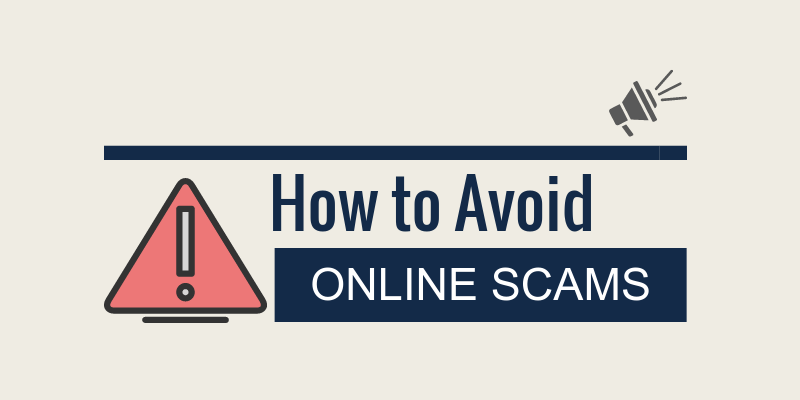How to Avoid Being Scammed Online
Fraudsters work with creative schemes to trick millions of individuals every year. In most situations, scammers combine new technology with the old to deceive people to send money or give personal info.
We pinpointed some measures that allow you to prevent being ripped off online.
1. Identify scammers. Scammers usually pretend to be someone you trust, like a government officer, a charitable organization, or a business you do business with. Don’t send money or give private info in reaction to an unexpected demand– whether it arrives as a text message, phone call, or by email.
2. Carry out online searches. Type the brand name into your favorite search engine with terms like “review,” “complaint” or “scam.” Or search for a terms that defines your situation, like “Tax Collection call.” Perform due diligence and don’t believe every complaint you see, as many companies are defamed by competitors as well. Better yet, search online for phone numbers to see if other people have reported them as rip-offs.
3. Don’t believe your caller ID. Modern technology makes it uncomplicated for scammers to use fake caller ID information, so the name and number you see won’t always be legitimate. If someone contacts asking for money or personal information, hang up straight away. If you think the caller may be telling the truth, call back to a number you know to be real to confirm.
4. Don’t pay in advance for a promise. The person may ask you to pay in advance for matters like debt alleviation, credit and loanoffers, mortgage services, or a job. They may even say you won a prize, but first you have to pay taxes or other types of fees. If you do, they will very likely take the money and disappear..
5. Think about how you pay. Credit cards have notable fraud protection built in, but other payment techniques don’t. Wiring money via companies like Western Union or MoneyGram is tricky because it’s very hard to get your money back. That’s also true for reloadable cards like Vanilla, MoneyPak, or Reloadit. Government offices and honest organizations wouldn’t ask you to use these types of payment methods.
6. Talk to someone you trust. Before you give up your money or personal information, talk to an individual you trust. Con artists try for you to make decisions in a haste. They might even threaten you. Slow down, check out the story, do an online search, consult an expert– or just seek confirmation from a friend.
7. Hang up on robotic calls. If you answer the phone and hear a recorded sales voice, hang up. These phone calls are illegal, and often the offerings are phony. Definitely don’t press 1 to speak to a person or to be taken off the list. Often, this only leads to more calls.
8. Be skeptical about free trial offers. Some providers use free trials to sign you up for products. Then they will bill you every month without asking up until you cancel. So before you concede to a free trial, study the business and read the cancellation terms. And constantly review your monthly statements for suspicious charges.
9. Never deposit a check and wire money back. By law, banks have to make funds from deposited checks accessible within days, but uncovering a fake check can take weeks. If a check you store turns out to be a fake, you’re liable for paying back the bank.
Sign up here for free scam alerts.
Quick advice to avoid being scammed online.
- Apply strong passwords.
- Use anti-virus solutions and keep operating solutions up to date.
- Watch out for unusual emails.
- Stay away from social media cons.
- Think twice before you shop or send money online.
- Safeguard your personal information.
Protect others by entrusting online reviews.
If you detect a scam, don’t keep it to yourself. Leave online reviews to let other people know that a person or a company is a scam.
If you have a complaint about a person or company who you believe to be a scam, let us know about it. Send us a review and we will publish it for you within 48 hours.

